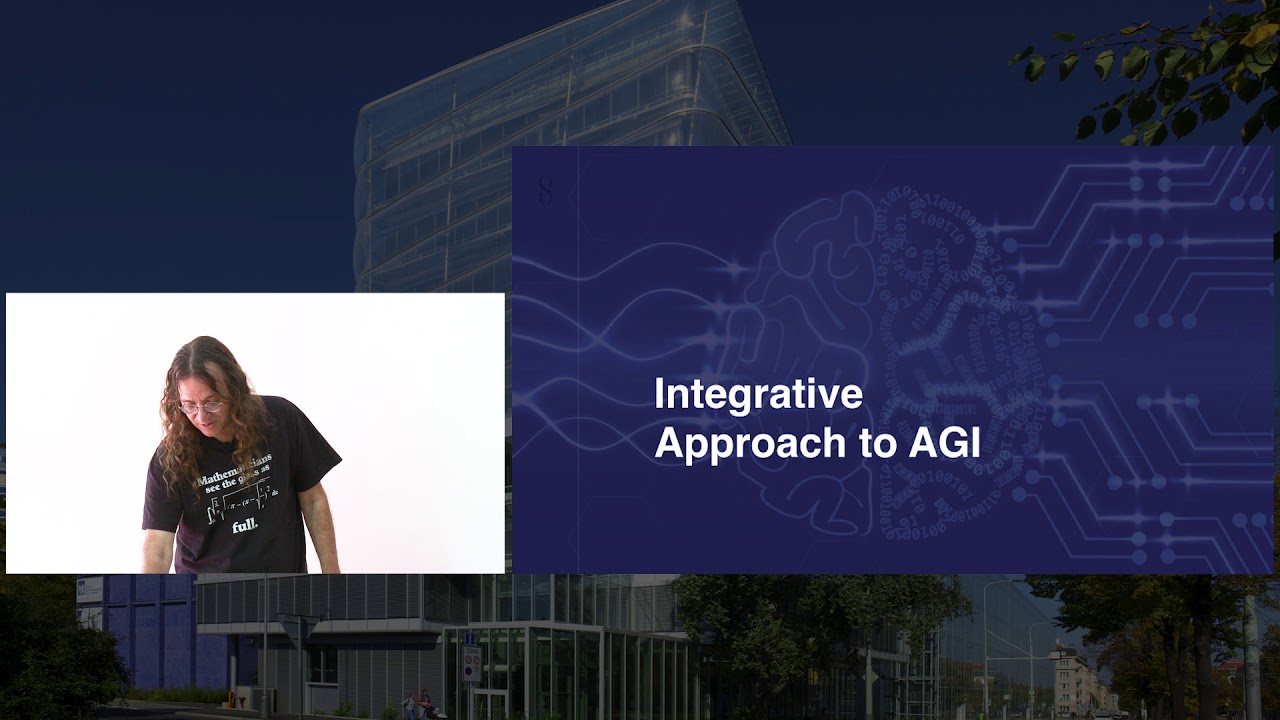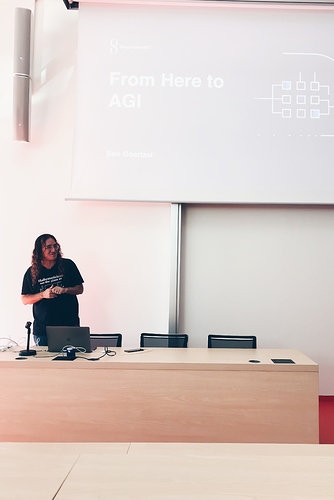Let us invite you to a following talk by Ben Goertzel entitled From Here to Human-Level AGI in 4 Simple Steps taking place on Monday May 21st, 9:30-10:30 a.m.
Venue: Czech Institute of Informatics, Robotics, and Cybernetics (Jugoslávských partyzánů 1580/3, Prague 6) – Red Lecture Room (B-246)
This event has passed, please find the recordings below
Video
Q&A
Abstract: AI technology has entered the mainstream of business and society, but there is still a large gap between the current crop of task-specific „narrow AI“ tools and the Artificial General Intelligences (AGIs) envisioned by futurists and SF authors. To get from here to true AGI will require advances in (at least) four different aspects. First, it will require coordination of different AI agents at various levels of specificity into an overall complex, adaptive AI network — which is the problem addressed by the SingularityNET blockchain-based AI framework. Second, it will require bridging of the algorithms used for low-level intelligence such as perception and movement (e.g. deep neural networks) with the algorithms used for high-level abstract reasoning (such as logic engines). Third, it will require embedding of AI systems in physical systems capable of interacting with the everyday human world in richly nuanced ways — such as the humanoid robots being developed at Hanson Robotics. Fourth, it will require the development of more sophisticated methods of guiding abstract reasoning algorithms based on history and context (an area lying at the intersection of AGI and automated theorem proving). Fortunately,while none of them are actually simple, all of these aspects of the AGI problem are topics of active research by outstanding teams around the world, making it plausible that AGI at the human level and beyond will be achieved during our lifetimes.
Dr. Ben Goertzel is one of the world’s foremost experts in Artificial General Intelligence, a subfield of AI oriented toward creating thinking machines with general cognitive capability at the human level and beyond. He also has decades of expertise applying AI to practical problems in areas ranging from natural language processing and data mining to robotics, video gaming, national security and bioinformatics. He has published nearly 20 scientific books and 140+ scientific research papers, and is the main architect and designer of the OpenCog system and associated design for human-level general intelligence.
Ben is the CEO of SingularityNET (a blockchain based AI platform company), and the Chief Scientist of Hanson Robotics, a robotics company that creates the world’s most advanced humanoid robots. Ben also serves as Chairman of the Artificial General Intelligence Society, which hosts the annual AGI research conference series, and the OpenCog Foundation.
Before relocating to Hong Kong in 2011, Dr. Goertzel held executive roles at AI consulting and product development firms in Washington DC (CEO, Chairman and Chief Scientist at Novamente LLC and Biomind LLC) and New York City (CTO at Webmind Inc.). Prior to that, he served as faculty in mathematics at the University of Nevada Las Vegas, in cognitive science as the University of Western Australia, and in computer science at Waikato University in New Zealand, at the City University of New York and at the University of New Mexico in Albuquerque. Dr. Goertzel holds a PhD degree in mathematics from Temple University in Philadelphia, USA.
More information: https://www.ciirc.cvut.cz/pozvanka-21-5-2018-ben-goertzel/



 .
.

 I will hunt down the cameraman
I will hunt down the cameraman 

